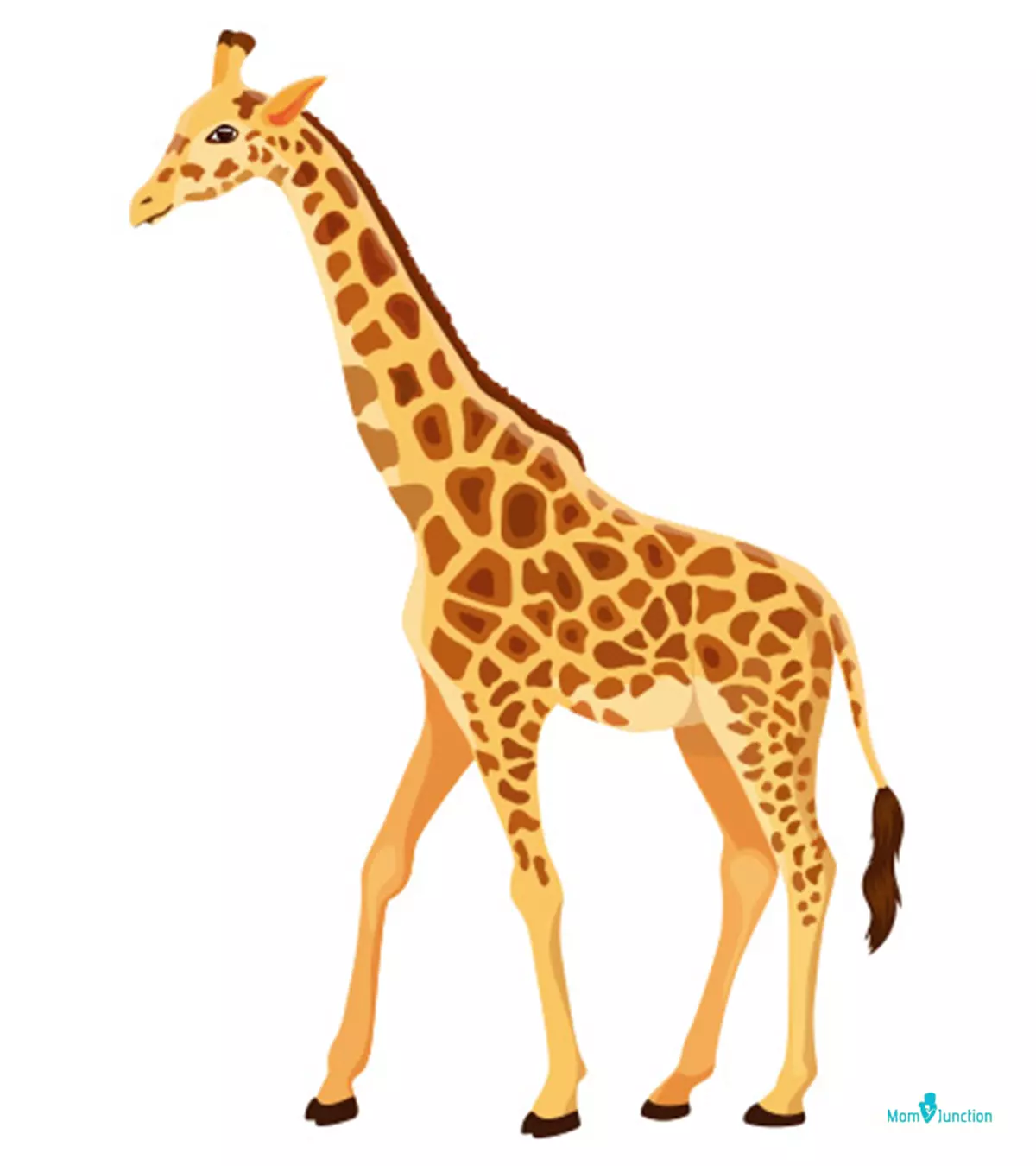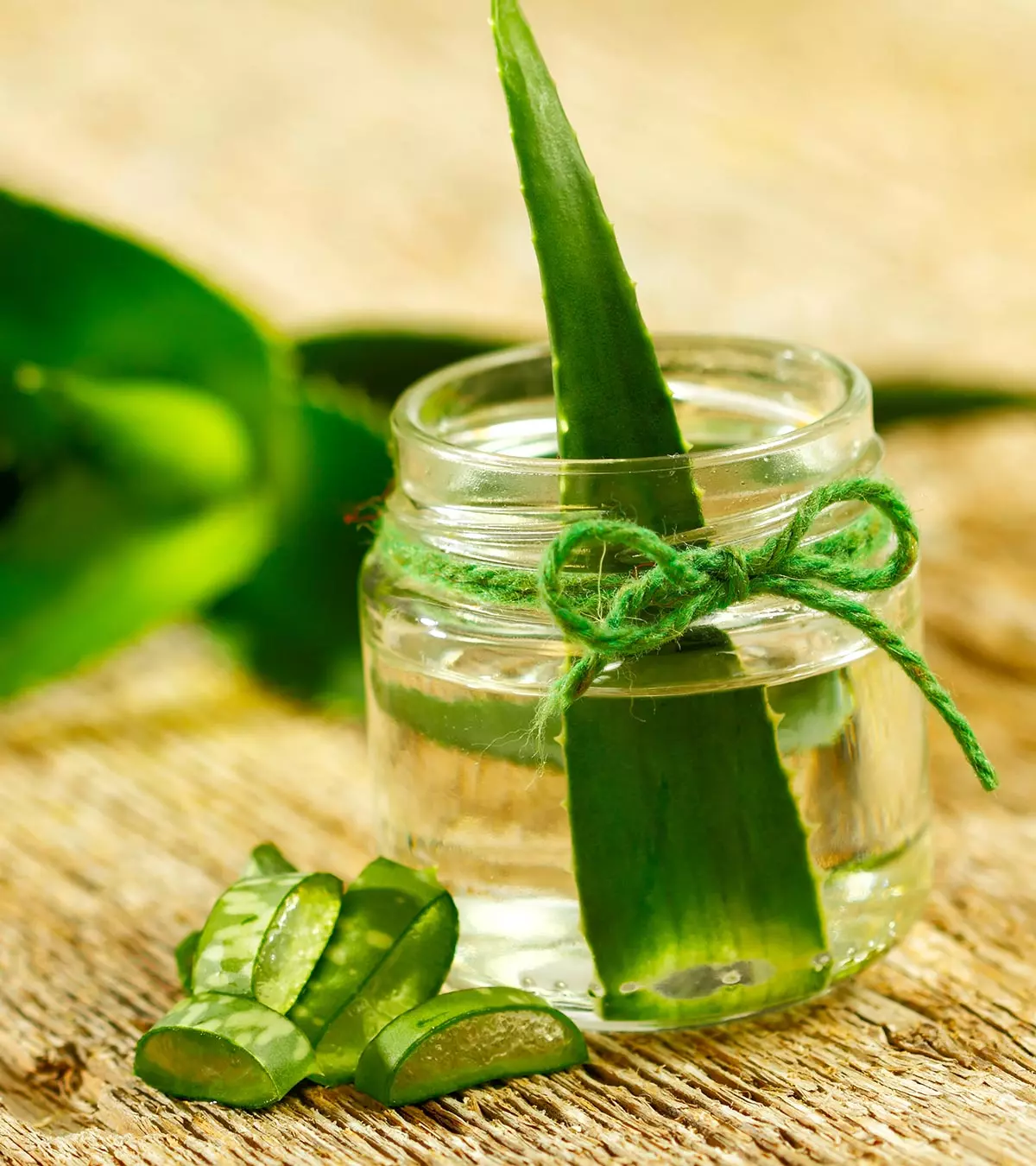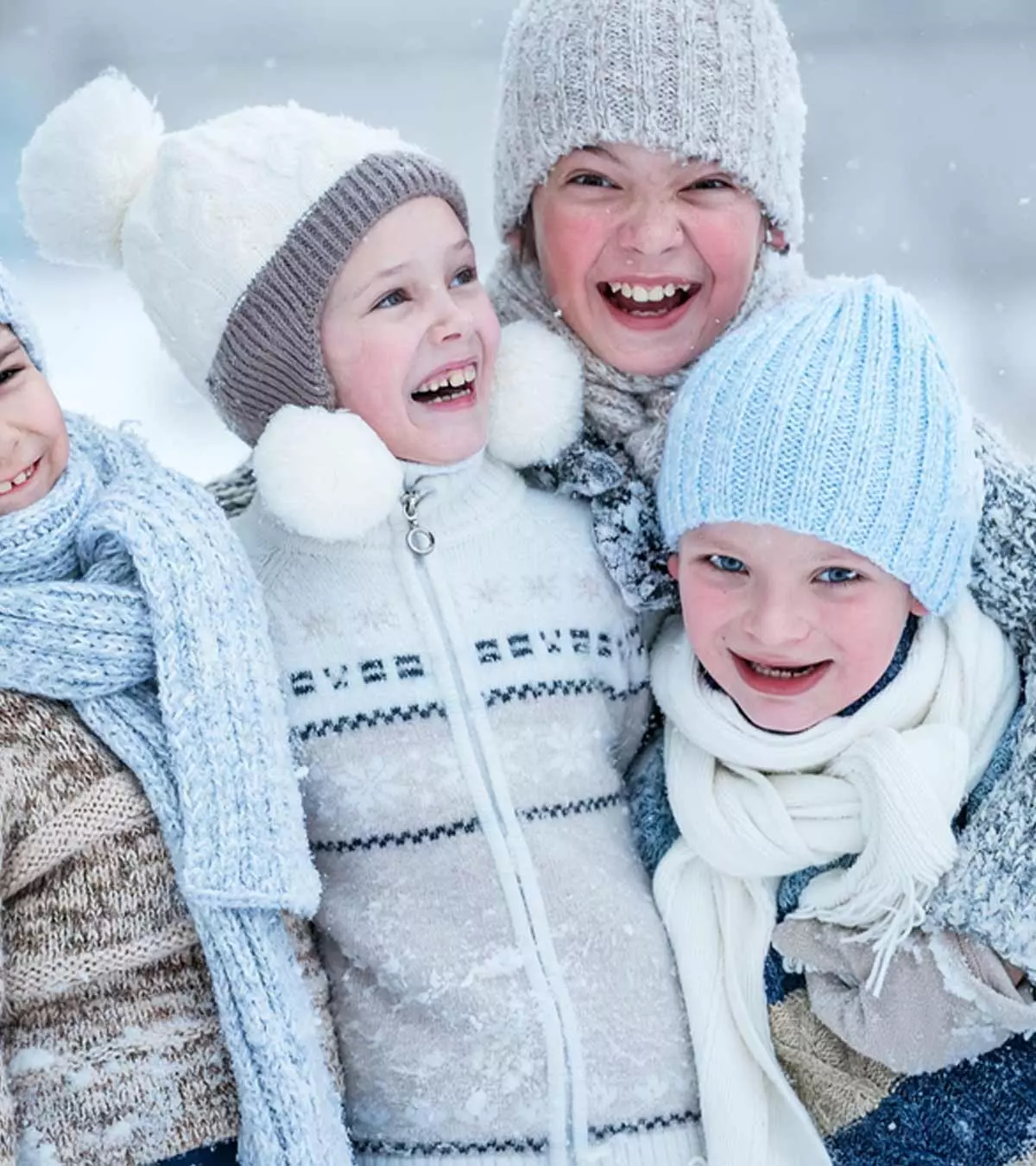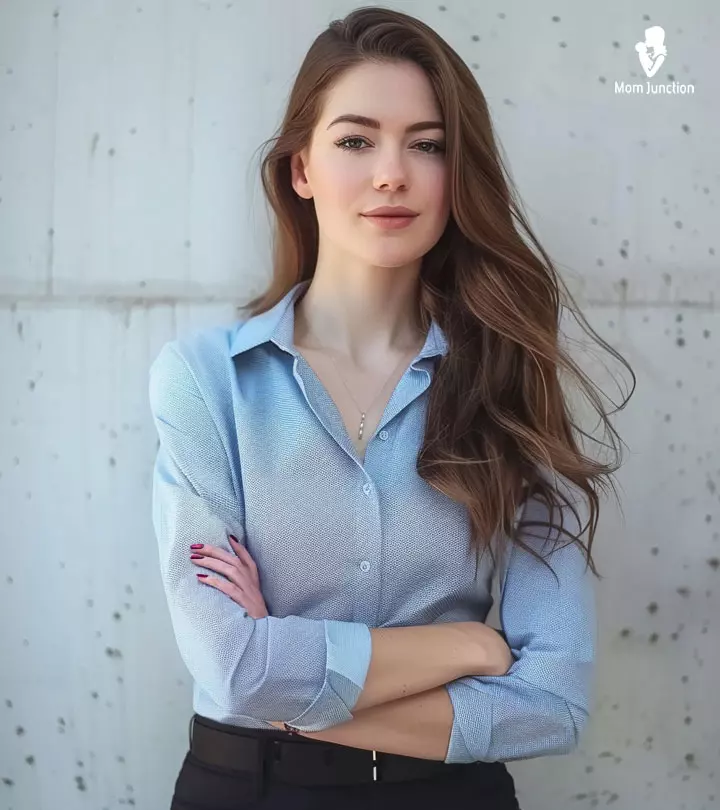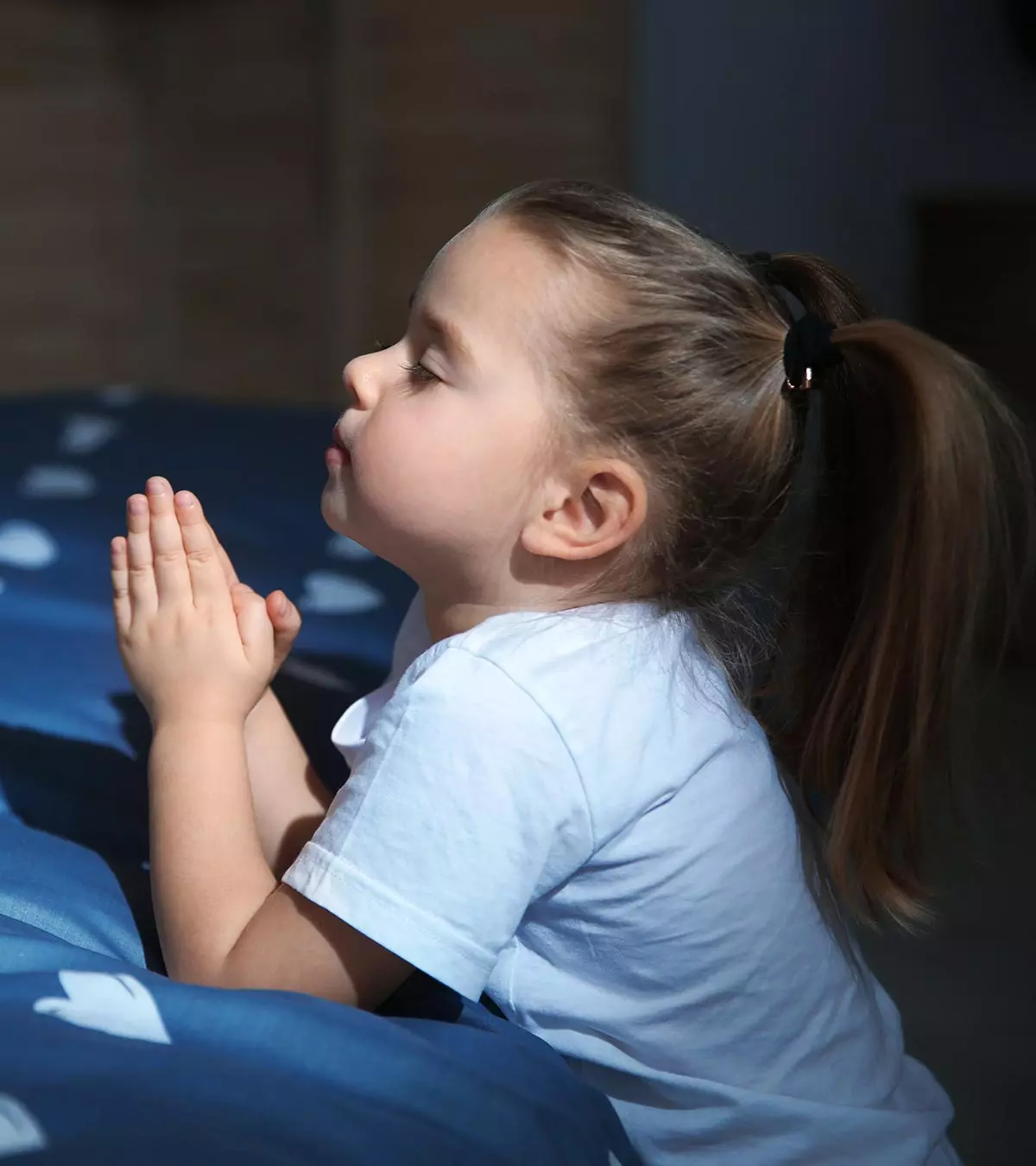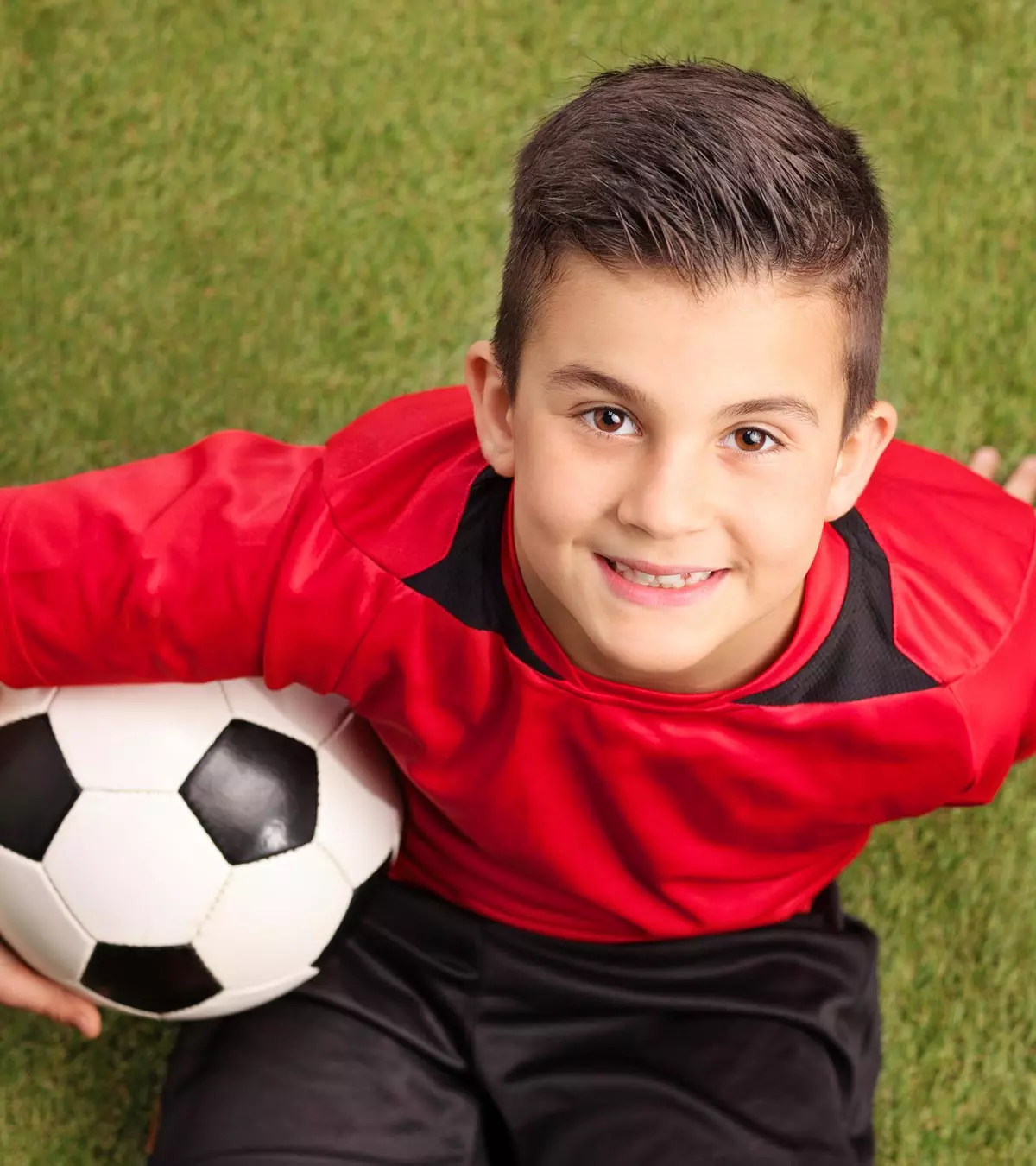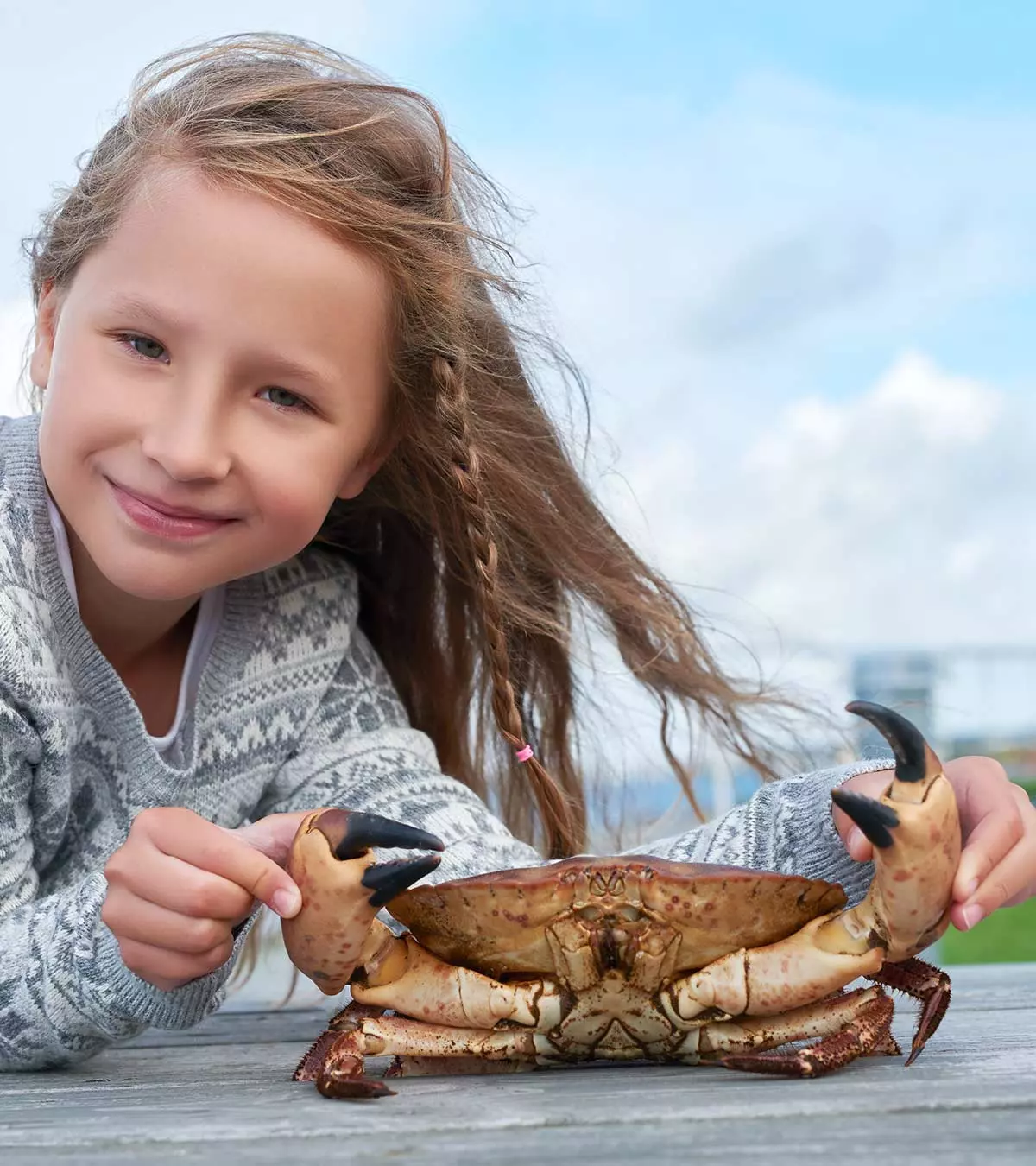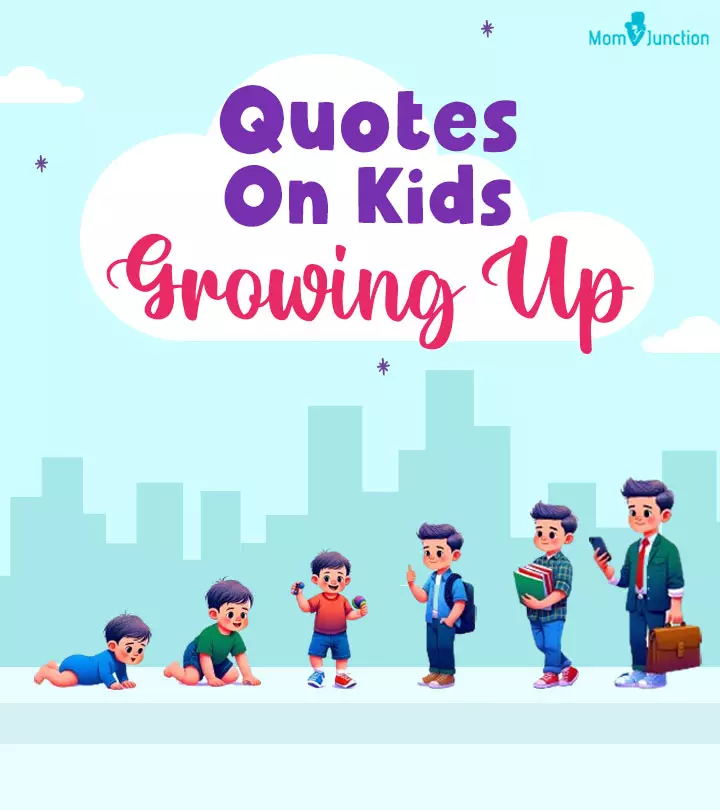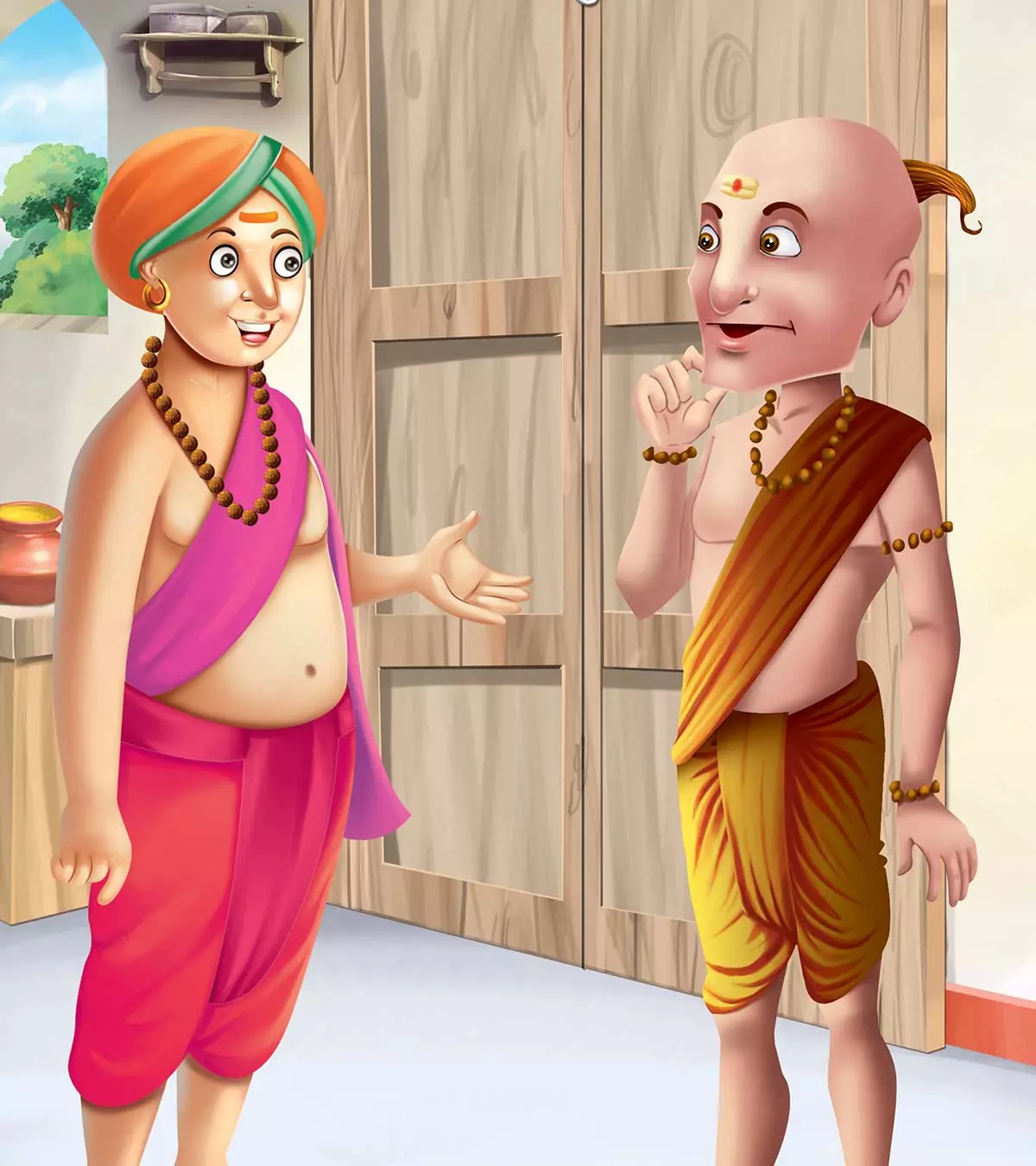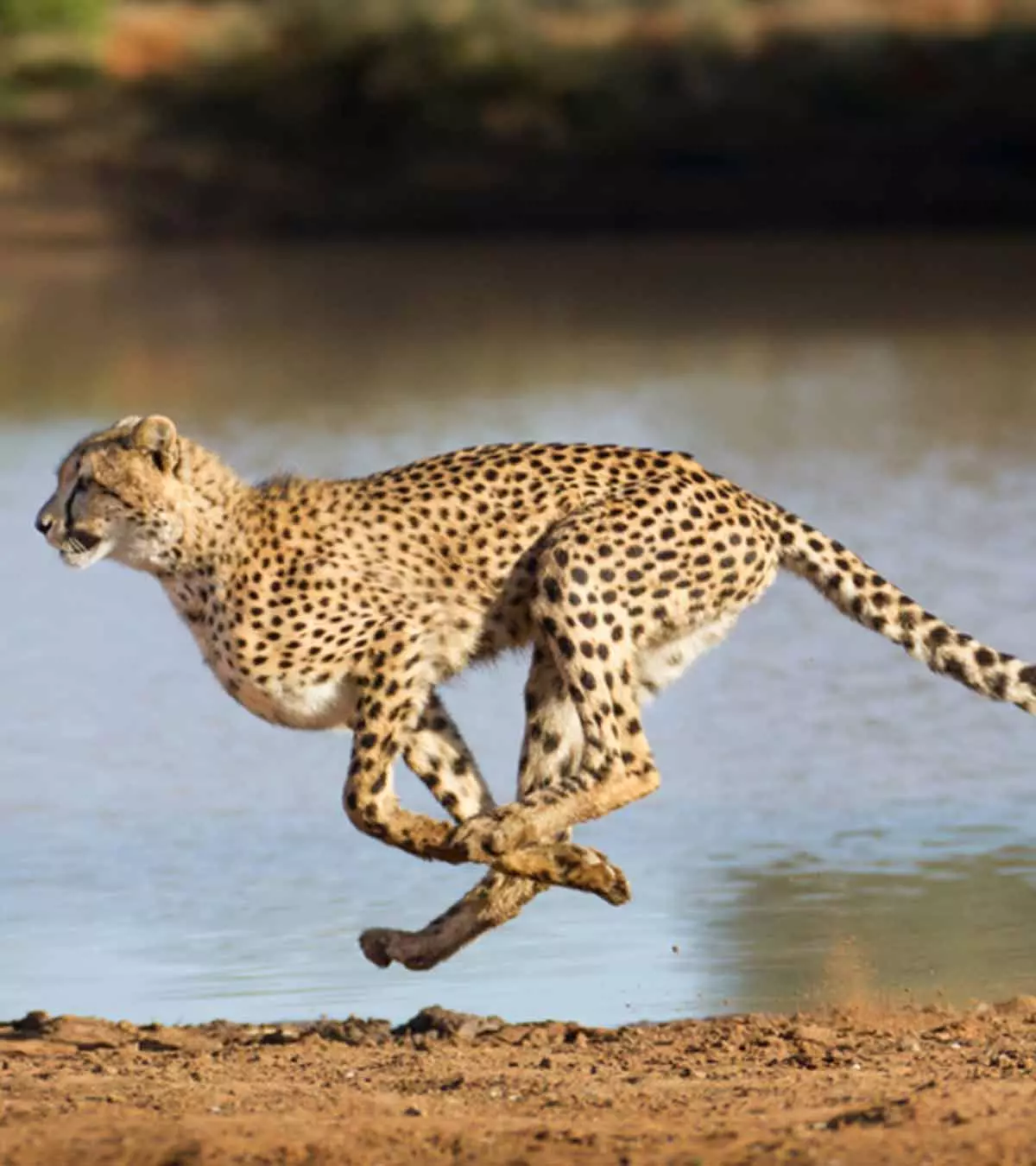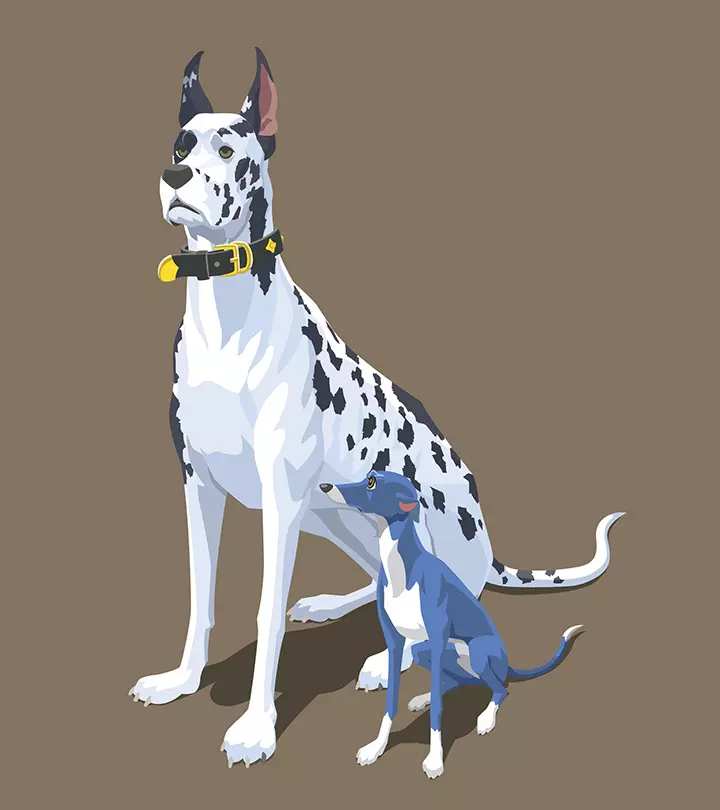
Image: Shutterstock
Whether pet, wild, domestic, or aquatic, children love animals and are fascinated by them. The world of animals is full of wonder and excitement, and there are so many things to learn from these incredible beings. Poems about animals for kids are innovative ways to educate them about various types of animals. Moreover, tons of stories and poems about animals are available that speak about learning their habitats, lifestyle, and distinct features. So, read on as we bring you some humorous, thought-provoking, easy and enjoyable poems and verses on animals that your kid would love to recite.

Key Pointers
- Poems are a great way of teaching a child about life; the best way to do this is by mentioning animals.
- Children learn about different animals, their lifestyles, habitats, and distinct features with poems on animals.
- Kindness To Animals By J. Ashby Sterry, My Farm Animals By Linda Harris, The Parakeets By Alberto Blanco, and Dentist And The Crocodile By Roald Dahl are funny and informative poems.
- When children explore the wide world of animals through poetry, they foster a deep understanding of empathy and compassion.
17 Best Animal Poems For Children
These poems are about animals of all kinds. Some are about pets and farm animals, and a few are about encounters in the wild. With a playful touch, these poems offer a fun alternative to traditional animal stories for kids. Are you ready?
1. Mary’s Lamb By Sarah Josepha Hale

“Mary had a little lamb,
Its fleece was white as snow,
And everywhere that Mary went
The lamb was sure to go;
He followed her to school one day—
That was against the rule,
It made the children laugh and play,
To see a lamb at school.
And so the Teacher turned him out,
But still he lingered near,
And waited patiently about,
Till Mary did appear;
And then he ran to her,
and laid His head upon her arm,
As if he said—”I’m not afraid—
You’ll keep me from all harm.”
“What makes the lamb love Mary so?”
The eager children cry—
“O, Mary loves the lamb, you know,”
The Teacher did reply;—
“And you each gentle animal
In confidence may bind,
-And make them follow at your call,
If you are always kind.””
2. Three Foxes By The Edge Of The Field At Twilight By Jane Hirshfield

“One ran,
her nose to the ground,
a rusty shadow
neither hunting nor playing.
One stood;
sat; lay down; stood again.
One never moved,
except to turn her head a little as we walked.
Finally we drew too close,
and they vanished.
The woods took them back as if they had never been.
I wish I had thought to put my face to the grass.
But we kept walking,
speaking as strangers do when becoming friends.
There is more and more I tell no one,
strangers nor loves.
This slips into the heart
without hurry, as if it had never been.
And yet, among the trees,
something has changed.
Something looks back from the trees,
and knows me for who I am.”
 Did you know?
Did you know?3. Kindness To Animals By J. Ashby Sterry
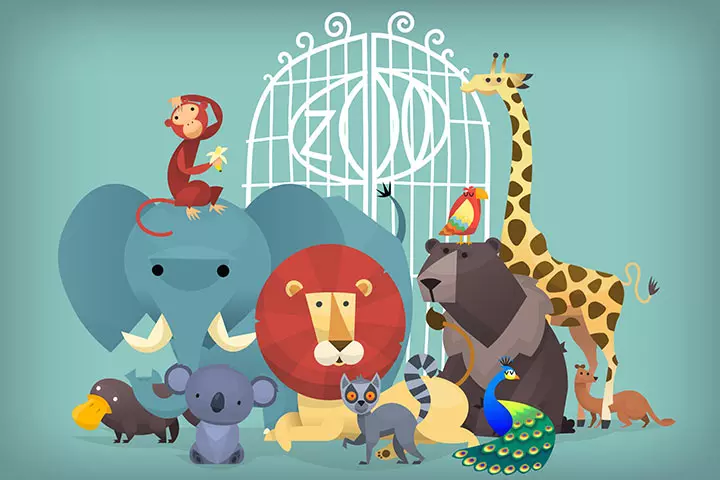
“Speak gently to the herring and kindly to the calf,
Be blithesome with the bunny, at barnacles don’t laugh!
Give nuts unto the monkey, and buns unto the bear,
Ne’er hint at currant jelly if you chance to see a hare!
Oh, little girls, pray hide your combs when tortoises draw nigh,
And never in the hearing of a pigeon whisper Pie!
But give the stranded jelly-fish a shove into the sea,–
Be always kind to animals wherever you may be!
Oh, make not game of sparrows, nor faces at the ram,
And ne’er allude to mint sauce when calling on a lamb.
Don’t beard the thoughtful oyster, don’t dare the cod to crimp,
Don’t cheat the pike, or ever try to pot the playful shrimp.
Tread lightly on the turning worm, don’t bruise the butterfly,
Don’t ridicule the wry-neck, nor sneer at salmon-fry;
Oh, ne’er delight to make dogs fight, nor bantams disagree,–
Be always kind to animals wherever you may be!
Be lenient with lobsters, and ever kind to crabs,
And be not disrespectful to cuttle-fish or dabs;
Chase not the Cochin-China, chaff not the ox obese,
And babble not of feather-beds in company with geese.
Be tender with the tadpole, and let the limpet thrive,
Be merciful to mussels, don’t skin your eels alive;
When talking to a turtle don’t mention calipee–
Be always kind to animals wherever you may be.”
4. The Great Black Crow By Philip James Bailey

“The crow – the crow! the great black crow!
He cares not to meet us wherever we go;
He cares not for man, beast, friend, nor foe,
For nothing will eat him he well doth know.
Know – know! you great black crow!
It’s a comfort to feel like a great black crow!
The crow – the crow! the great black crow!
He loves the fat meadow – his taste is low;
He loves the fat worms,
and he dines in a row With fifty fine cousins all black as a sloe.
Sloe – sloe! you great black crow!
But it’s jolly to fare like a great black crow!
The crow – the crow! the great black crow!
He never gets drunk on the rain or snow;
He never gets drunk, but he never says no!
If you press him to tipple ever so.
So – so! you great black crow!
It’s an honour to soak like a great black crow!
The crow – the crow! the great black crow!
He lives for a hundred year and mo’;
He lives till he dies, and he dies as slow
As the morning mists down the hill that go.
Go – go! you great black crow!
But it’s fine to live and die like a great black crow!.”
5. The Frog By Hilaire Belloc

“Be kind and tender to the Frog,
And do not call him names,
As “Slimy-Skin,” or “Polly-wog,”
Or likewise, “Uncle James,”
Or “Gape-a-grin,” or “Toad-gone-wrong,”
Or, “Billy-Bandy-knees;”
The Frog is justly sensitive
To epithets like these.
No animal will more repay
A treatment kind and fair,
At least, so lonely people say
Who keep a frog
and, by the way, They are extremely rare.”
6. A Night With A Wolf By Bayard Taylor

“Little one come to my knee!
Hark how the rain is pouring
Over the roof in the pitch dark night,
And the winds in the woods a-roaring
Hush, my darling, and listen,
Then pay for the story with kisses;
Father was lost in the pitch-black night
In just such a storm as this is.
High on the lonely mountain
Where the wild men watched and waited;
Wolves in the forest, and bears in the bush,
And I on my path belated.
The rain and the night together
Came down, and the wind came after,
Bending the props of the pine tree roof
And snapping many a rafter.
I crept along in the darkness,
Stunned and bruised and blinded…
Crept to a fir with thick-set boughs,
And a sheltering rock behind it.
There, from the blowing and raining,
Crouching I sought to hide me;
Something rustled, two green eyes shone,
And a wolf lay down beside me.
Little one, be not frightened;
I and the wolf together,
Side be side through the long, long night,
Hid from the awful weather.
His wet fur pressed against me;
Each of us warmed the other;
Each of us felt in the stormy dark
That beast and man was brother.
And when the falling forest
No longer crashed in warning,
Each of us went from our hiding place
Forth in the wild wet morning.
Darling, kiss me in payment…
Hark! how the wind is roaring!
Father’s house is a better place
When the stormy rain is pouring.”
7. My Farm Animals By Linda Harris
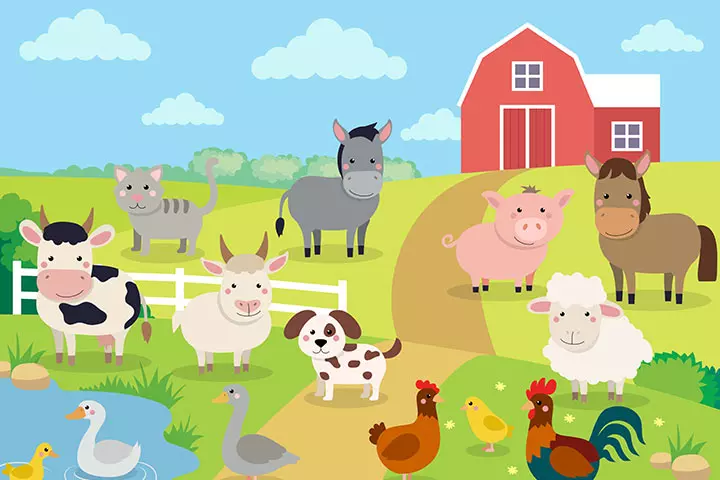
“On a sunny day, I sat on my porch swing
And watched a cool fresh summer rain
Everything then seem to come so alive
Birds flew to birdbaths to take a dive
My horse started galloping with glee
Putting on a show to entertain me
The donkey, he was hee-hawing so loud
Trying to get the attention of a crowd
The cows and goats stepped up to see
What all the commotion seemed to be
Chicken were making clucking sounds
Even little bunnies were looking around
Simon, the cat, awoke, puzzled over this
Fell back to sleep for his daily rest
My farm animals so joyful and free
Well, no one to see, but only me!”
8. The Cheetah By Gracie Robertson
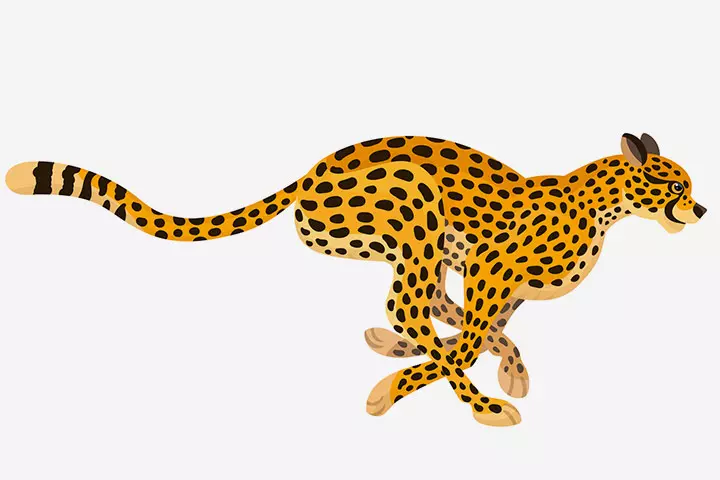
“The faster the cheetah flies,
The faster his poor prey dies.
The hungrier the cheetah gets,
The longer his prey frets.
He happens to be real smart,
He always plays a part,
In keeping the population down,
He sometimes eats something brown.
He sometimes does not catch his food,
’cause his prey is really rude.
The lions and leopards growl,
Show that they’re on the prowl,
They hunt for anything that moves,
Including the cheetahs brood.
The cheetah now has no young,
to carry life to old and young.”
9. The Daily Routine Of My Cat By M. Tarun Prasad
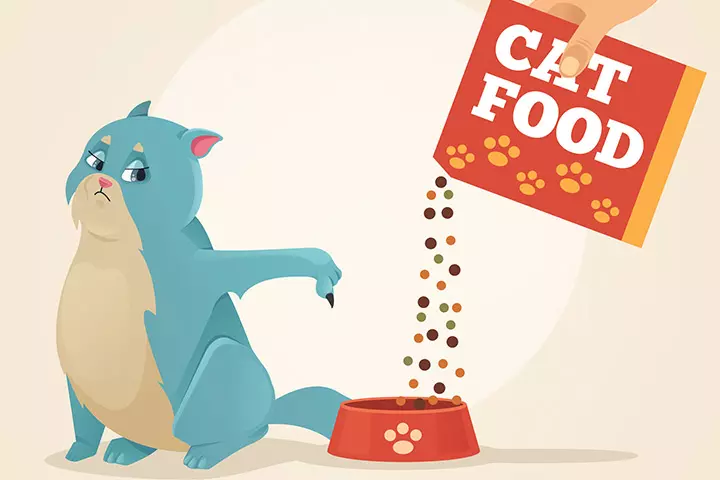
“Starts off in the morning, wakes up at six,
Grooms itself using its tongue and licks.
I give it break fast with a friendly pat.
That’s the daily morning of my cat.
Returns for lunch at one o’ clock.
Eats milk rice and then goes for a walk.
Sometimes even hunts and catches a rat.
That’s the daily afternoon of my cat.
Naps after lunch outside my door.
Sleeps so deeply, perhaps even snores.
Doesn’t like the ground; it prefers a mat.
That’s the daily evening of my cat.
Wakes up refreshed and comes for dinner.
Does it eat too much? Shouldn’t it be thinner?
Eats and sleeps – hope it doesn’t get fat.
That’s the daily night of my cat.”
10. Woods At Night By Annette Bigger

“Wild geese fly with the moon on their wings,
And a nightingale sits on a branch as it sings.
All is peaceful in the still of night,
and the moon is shining very bright.
There’s only a rustle of a breeze in the trees,
And to night for sure there will be a freeze.
For the air is crisp, so crisp it will snap,
At the slightest sound, rustle or rap.
An owl skims slowly o’er the treetops.
It slowly circles ’round a tree and stops.
It sits and surveys the forest floor,
Captivated by mystery and woodsy lore.
For at night in the forest there’s gamey in the air,
And the wild fox now creeps out of its lair.
It yaps and the stillness is split with a knife,
Yet all else continues with no conflict or strife.”
11. The Parakeets By Alberto Blanco
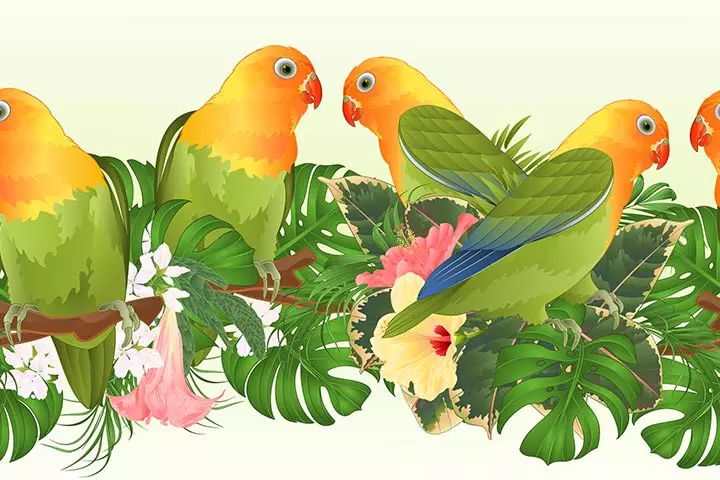
They talk all day
and when it starts to get dark
they lower their voices
to converse with their own shadows
and with the silence.
They are like everybody —
the parakeets— all day chatter,
and at night bad dreams.
With their gold rings
on their clever faces,
brilliant feathers
and the heart restless with speech…
They are like everybody,
—the parakeets—
the ones that talk best
have separate cages.”
12. The Owl And The Pussycat Poem By Edward Lear
The Owl and the Pussy-Cat went to sea
In a beautiful pea-green boat,
They took some honey, and plenty of money,
Wrapped up in a five pound-note.
The Owl looked up to the stars above,
And sang to a small guitar,
‘O lovely Pussy! O Pussy, my love,
What a beautiful Pussy you are,
You are,
You are!
What a beautiful Pussy you are.’
Pussy said to the Owl, ‘You elegant fowl,
How charmingly sweet you sing.
O let us be married, too long have we tarried,
But what shall we do for a ring?’
They sailed away for a year and a day,
To the land where the Bong-tree grows,
And there in the wood a Piggy-wig stood,
With a ring in the end of his nose,
His nose,
His nose!
With a ring in the end of his nose.
‘Dear Pig, are you willing, to sell for one shilling
Your ring?’ Said the Piggy, ‘I will.’
So they took it away, and were married next day,
By the Turkey who lives on the hill.
They dined on mince, and slices of quince,
Which they ate with a runcible spoon;
And hand in hand, on the edge of the sand,
They danced by the light of the moon,
The moon,
The moon,
They danced by the light of the moon
13. The Eagle By Alfred Lord Tennyson
He clasps the crag with crooked hands;
Close to the sun in lonely lands,
Ring’d with the azure world, he stands.
The wrinkled sea beneath him crawls;
He watches from his mountain walls,
And like a thunderbolt, he falls.
14. A Bird Came Down The Walk By Emily Dickinson
A Bird, came down the Walk –
He did not know I saw –
He bit an Angle Worm in halves
And ate the fellow, raw,
And then, he drank a Dew
From a convenient Grass –
And then hopped sidewise to the Wall
To let a Beetle pass –
He glanced with rapid eyes,
That hurried all abroad –
They looked like frightened Beads, I thought,
He stirred his Velvet Head. –
Like one in danger, Cautious,
I offered him a Crumb,
And he unrolled his feathers,
And rowed him softer Home –
Than Oars divide the Ocean,
Too silver for a seam,
Or Butterflies, off Banks of Noon,
Leap, plashless as they swim.
Funny Poems For Kids
These poems about animals are silly and sure to bring out smiles and giggles on your kid’s face.
15. Dentist And The Crocodile By Roald Dahl

“The crocodile, with a cunning smile, sat in the dentist’s chair.
He said, “Right here and everywhere my teeth require repair.”
The dentist’s face was turning white.
He quivered, quaked and shook.
He muttered, “I suppose I’m going to have to take a look.”
“I want you,” Crocodile declared, “to do the back ones first.
The molars at the very back are easily the worst.”
He opened wide his massive jaws.
It was a fearsome sight––
At least three hundred pointed teeth, all sharp and shining white.
The dentist kept himself well clear.
He stood two yards away.
He chose the longest probe he had to search out the decay.
“I said to do the back ones first!” the Crocodile called out.
“You’re much too far away, dear sir, to see what you’re about.
To do the back ones properly you’ve got to put your head Deep down inside my great big mouth,” the grinning Crocky said.
The poor old dentist wrung his hands and, weeping in despair,
He cried, “No no! I see them all extremely well from here!”
Just then, in burst a lady, in her hands a golden chain.
She cried, “Oh Croc, you naughty boy, you’re playing tricks again!”
“Watch out!” the dentist shrieked and started climbing up the wall.
“He’s after me! He’s after you! He’s going to eat us all!”
“Don’t be a twit,” the lady said, and flashed a gorgeous smile.
“He’s harmless. He’s my little pet, my lovely crocodile.””
 Did you know?
Did you know?16. Glow Worm By Taylor Russell
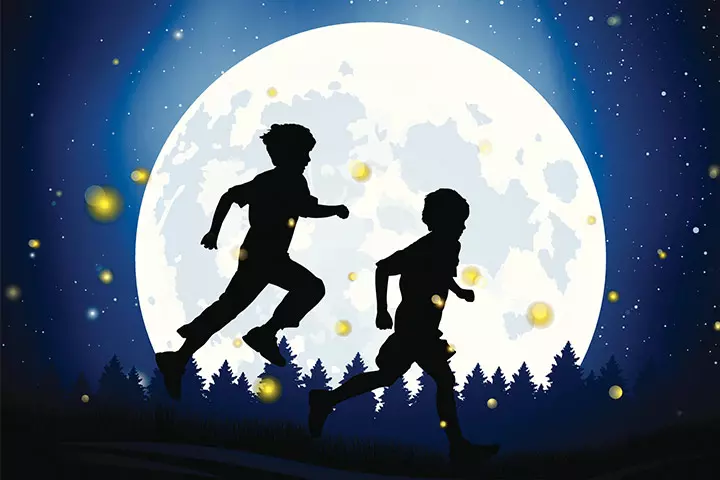
“Oh, I wish I were a glow worm,
for a glow worm’s never glum,
’cause how can you be grumpy
when the sun shines out your bum!”
17. Three Little Piggies By Paige
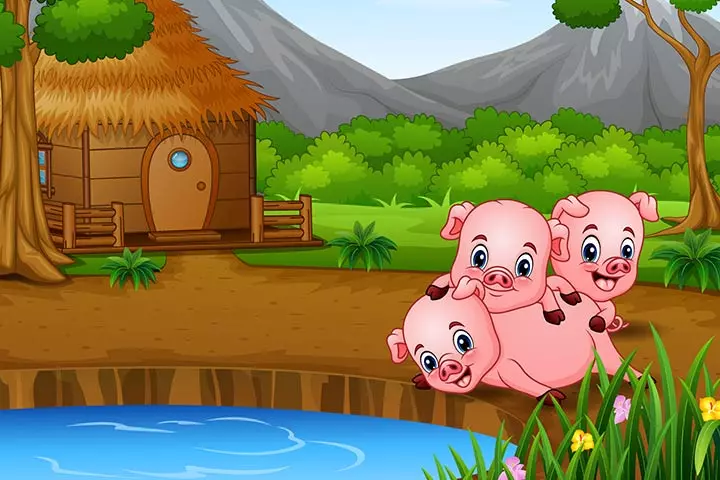
“I have three piggies,
Who live in the shed
They sleep in their food bowl
And eat in their bed
They drink lots of water
Which makes them go wee
This usually happens
While they are sitting on my knee!!!”
Frequently Asked Questions
1. How do animals inspire poets to write poems about them?
Animals generally radiate a sense of serenity, confidence, and peace. They are frequently employed to symbolize particular features, character types, feelings, or moods.
2. How do animals in poems help children learn about the world?
Children learn about nature, behaviors, lessons from life, and connections in poems about animals and other creatures in a pretty enjoyable and engaging way. Poems about animals often depict various emotions and encourage children’s creativity and imagination.
3. How can I use animal poems to teach kids about different animals?
To educate kids about different animals using poems, choose descriptive poems that vividly depict each animal and its characteristics. Read the poems aloud, prompt kids to imagine the animals and their habitats, and initiate discussions to foster curiosity.
4. What types of animals are represented in the poems for kids?
Animal poems for kids feature a number of different kinds of animals, from household pets like dogs and cats to farm animals like cows, horses, sheep, and pigs. Some even feature wild animals, like crocodiles, wolves, foxes, and cheetahs. This variety entertains children and helps teach them about the habits and traits of different animals.
5. Can I do any interactive activities with kids to enhance their understanding of animal poems?
Crafting collages or artwork, engaging in role-playing or dramatic readings, participating in an animal sound guessing game, exploring nature, and inspiring them to write their own animal-inspired poetry are excellent activities to boost their understanding. Customize activities to suit your child’s age and preferences, fostering enhanced engagement and learning.
6. How can animal poems help children develop their language skills?
Animal poems can support the growth of children’s language skills by introducing them to a wide range of words and descriptive language. Children can expand their vocabulary, enhance their comprehension, and develop their ability to express thoughts creatively and confidently.
7. Can animal poems be used to teach children about empathy and compassion for animals?
Animal poems can be used as a powerful tool to teach children about empathy and compassion. By immersing themselves in the world of animals through poems, children can develop a greater appreciation for their experiences, emotions, and the importance of treating animals with care, kindness, and respect.
Animals complement human existence in various ways. Knowing about different animals can sensitize children to these fellow beings and teach them to care. So share these short poems and rhymes about animals for kids with your child and let them sing and have a fun learning experience. These poems are written in a pace and tone ideal for children of all ages. They are also easy for kids to memorize and enjoy singing with their friends and peers. And who knows your child may feel motivated to write poems to express their thoughts one day.
Illustration: Short Poems About Animals For Kids

Image: Dall·E/MomJunction Design Team
A sloth is so slow, it’s hard to believe. It’s a funny animal, so let’s rhyme and grieve. Join us for a poem about this lazy creature. Let’s have some fun and learn a new feature!
Community Experiences
Join the conversation and become a part of our nurturing community! Share your stories, experiences, and insights to connect with fellow parents.
Read full bio of Elisabeth Daly
Read full bio of Harshita Makvana
Read full bio of Deepa Thomas





